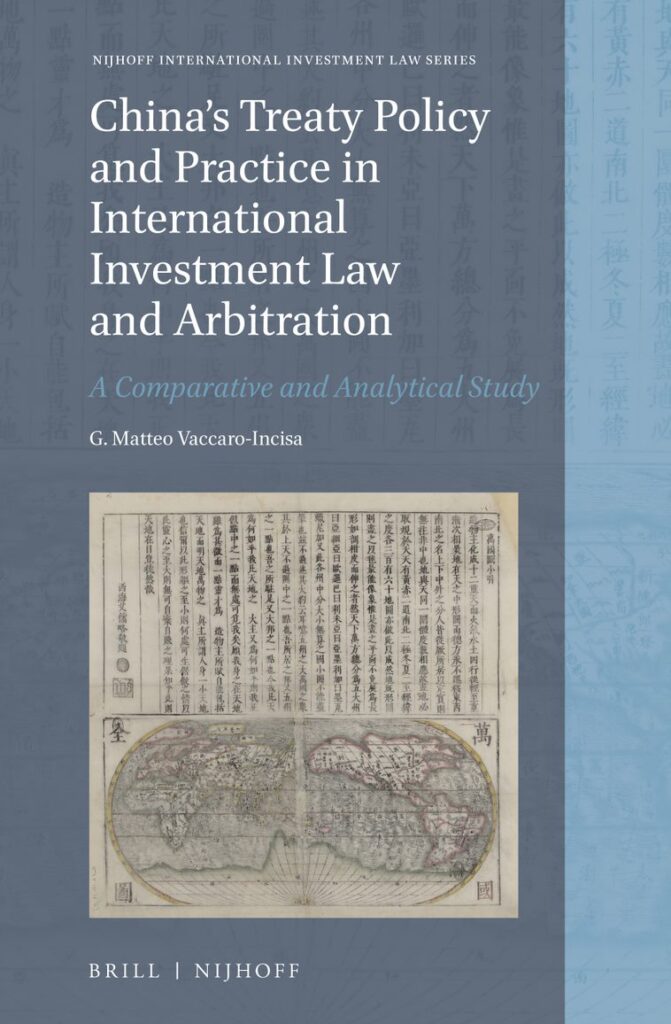A review by Xu Qian of G. Matteo Vaccaro-Incisa’s new book

China’s success in attracting foreign direct investment (FDI) in the past decades is unprecedented. It is currently the second largest FDI recipient in the world, which is a success partially due to China’s efforts to enter into international investment instruments, such as BITs and free trade agreements (FTAs). Since its first bilateral investment treaty (BIT) with Sweden in 1982, China has signed BITs with more than 130 countries. In addition, Chinese investment treaties have typically provided international forums for settling investment disputes such as the International Centre for the Settlement of Investment Disputes (ICSID). Being both a capital importing and a capital exporting nation, China is in a need to maintain a balance of such dual role through its international investment instruments, attracting inward FDI and, at the same time, protecting outward FDI.
In the early stage, China’s BITs mainly follow the template as established by western countries, yet with the rapid economic growth, China is more willing to set up its own discourse. The Belt and Road Initiative, and the separate negotiations with the EU and US regardless their ultimate fate reveal China’s proactive approach to participate in the global economic governance. China’s dual role regarding FDI and its investment strategies is efficiently transforming its role as a reliable rule-maker in the global economy. China has also reviewed its BIT policy and practices owning to the experience in dealing with the cases filed by foreign investors against China. Against this background, Dr. Vaccaro-Incisa’s book offers the most comprehensive and detailed account of China’s treaty policy and practice in international investment law and arbitration published to date.

Through his comparative and analytical study, this book reviews the changing role of China in international investment. It provides a detailed analysis of the contents of all of China’s agreements from 1982 to 2015 by considering the role of investment treaties in China’s economic policy. This book also provides a summary of key literature in discussing China’ BITs and their characteristics, application and pitfalls. By interpreting the key provisions of the BITs and discussing the evolution and features of these investment treaties, this book successfully identifies trends in major areas of Chinese investment treaty making. It produces objective assessment of investment arbitration of China’s treaty practice. This book without doubt represents a significant accomplishment in clearly laying out the content and systemically examining China’s treaty making practices in a broader context. Overall, this book represents not only a valuable and necessary addition to the literature but also a point of departure that invites further research in China’s practice in this area.
G. Matteo Vaccaro-Incisa’s monograph China’s Treaty Policy and Practice in International Investment Law and Arbitration – A Comparative and Analytical Study is published with Brill.
Dr. Xu QIAN is Associate Professor & “Hundred Talents Program Fellow” at Zhejiang University (ZJU), School of Law and Affiliated Expert, Asia Pacific FDI Network (APFN). She is also an active member of Asia Society of International Law, and Academic Forum on Investor-state Dispute Settlement. She specialises in transnational law and researches in a diverse range of cutting-edge cross-border issues, including water and sanitation law, Alternative Dispute Resolution (ADR), International Economic Law and Public International Law. She may be contacted via email at: qianxuxu [at] zju.edu.cn.
